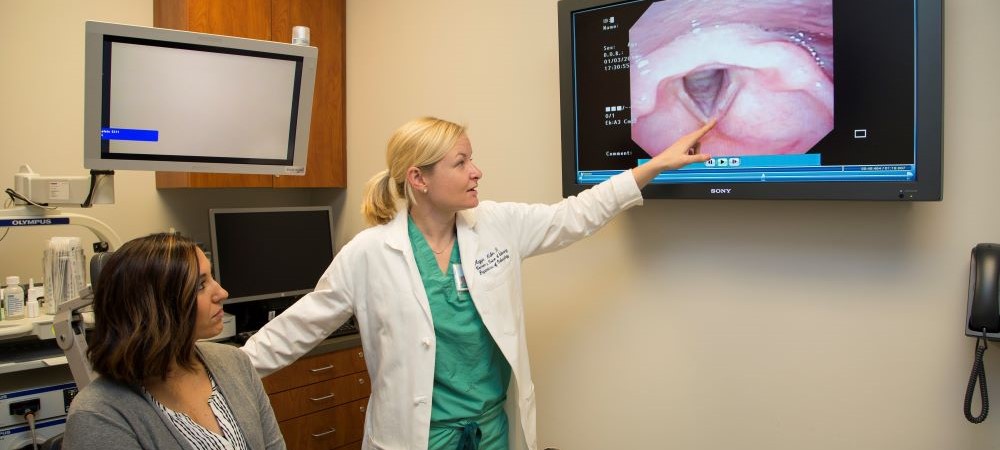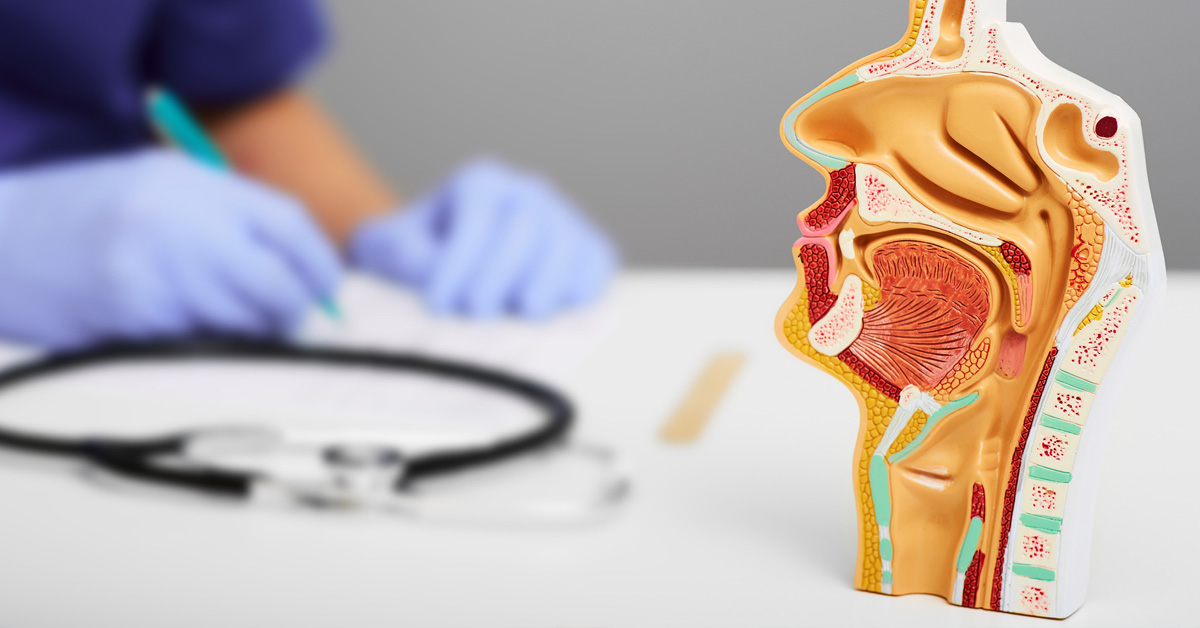A Complete Guide at Otolaryngology and Its Role in Treating Throat Disorders
A Complete Guide at Otolaryngology and Its Role in Treating Throat Disorders
Blog Article
Discovering the Area of Otolaryngology: What to Anticipate When You Seek Advice From an ENT
Otolaryngology, frequently referred to as ENT, incorporates the diagnosis and therapy of ear, nose, and throat conditions. For those experiencing relevant concerns, seeking advice from an ENT professional can give clarity and alleviation. Understanding what to expect throughout such appointments is important for efficient communication and treatment. This introduction will lay out vital aspects of the ENT experience, including typical reasons for check outs and the processes included in diagnosis and treatment.

Recognizing Otolaryngology: An Introduction
Otolaryngology, frequently described as ENT (Nose, ear, and throat) medicine, is a specialized branch of medication that concentrates on the medical diagnosis and therapy of conditions influencing these essential locations of the body. This area includes a large range of conditions, including those related to hearing, equilibrium, respiratory function, and speech. Otolaryngologists are educated to take care of both surgical and medical treatments, utilizing sophisticated methods and modern technologies. Their competence extends beyond standard disorders, dealing with problems such as allergic reactions, sinus infections, and hearing loss. Additionally, they play an important function in the monitoring of head and neck cancers, supplying complete treatment customized to private person requirements. Overall, otolaryngology continues to be essential for keeping wellness and quality of life in damaged people.
Usual Reasons to See an ENT Professional
Many individuals look for the knowledge of an ENT specialist for a variety of factors, showing the varied nature of conditions that affect the ear, throat, and nose. Usual problems include chronic sinus problems, which frequently brings about consistent nasal blockage and facial pain. Allergic reactions and their associated signs, such as sneezing and itching, also trigger brows through to these specialists (Voice). Hearing loss, whether sudden or progressive, is one more considerable reason for assessment. Furthermore, people might look for assessment for throat problems, consisting of consistent hoarseness or swallowing problems. Rest apnea, characterized by interrupted breathing during rest, is regularly attended to by ENT experts. Each of these conditions highlights the value of specialized care in handling complicated ENT-related health problems
Getting ready for Your ENT Appointment
When planning for an ENT visit, it is vital to gather appropriate info and take into consideration any specific issues. People need to compile a detailed case history, including previous ear, nose, or throat problems, surgical procedures, and current drugs. Documenting signs and symptoms-- such as regularity, intensity, and period-- can supply useful insights for the ENT expert. Furthermore, individuals must prepare a checklist of questions they want to ask, making sure that all concerns are dealt with during the see. Bringing along any type of relevant medical records or examination outcomes can additionally help the ENT in understanding the patient's problem. Lastly, people need to validate their visit details, consisting of date, time, and location, to lessen any type of last-minute confusion. Correct prep work can enhance the effectiveness of the examination and cause much better end results.
What to Expect During the Examination
As the assessment begins, the patient can expect to participate in an extensive discussion with the ENT specialist about their symptoms and case history. The specialist will make inquiries about the duration, frequency, and seriousness of signs such as hearing loss, nasal congestion, or sore throat. In addition, the individual's previous medical problems, medicines, and any kind of pertinent household history will be evaluated, helping the specialist in forming a complete understanding of the individual's wellness. The ENT might also inquire about way of living elements, such as exposure to toxic irritants or irritants. This open dialogue establishes a structure for the examination, making certain that the individual's problems are dealt with and establishing the phase for any kind of necessary evaluations or suggestions for treatment.
Diagnostic Examinations and Procedures in Otolaryngology
A series of diagnostic tests and treatments are essential in otolaryngology to properly assess and diagnose problems impacting the nose, throat, and ear. Common examinations include audiometry, which measures hearing feature, and tympanometry, evaluating middle ear pressure. Nasal endoscopy allows visualization of the nasal flows and sinuses, while laryngoscopy takes a look at the throat and singing cables. Imaging strategies, such as CT scans and MRIs, give in-depth sights of head and neck frameworks. Allergy testing might additionally be performed to identify triggers for sinus or breathing issues. These diagnostic tools enable ENT professionals to establish an extensive understanding of clients' problems, making certain customized and reliable administration strategies. Appropriate medical diagnosis is important for effective treatment end results in otolaryngology.
Treatment Choices Provided by ENT Specialists
ENT experts provide a variety of therapy options customized to deal with details problems impacting the throat, nose, and ear. These therapies vary from traditional techniques, such as medication and lifestyle modifications, to even more invasive treatments. Allergic reactions might be managed with antihistamines or immunotherapy, while persistent sinus problems could call for nasal corticosteroids or sinus surgery. For hearing loss, ENT professionals frequently recommend listening device or medical interventions like cochlear implants. In situations of throat disorders, choices can include speech treatment or surgeries to eliminate blockages. In addition, they may supply guidance for taking care of sleep apnea, including making use of CPAP tools or surgical treatments. Overall, the goal is to boost individuals' lifestyle through individualized care and reliable therapy approaches.
When to Seek Follow-Up Care With an ENT
Recognizing when to seek follow-up treatment with an ENT specialist is essential for handling recurring signs or complications connected to throat, ear, and nose conditions. Individuals should think about setting up a follow-up consultation if symptoms linger in spite of preliminary treatment, such as persistent ear discomfort, nasal blockage, or throat discomfort. Changes in hearing, balance problems, or uncommon nasal discharge may also call for further assessment. In addition, if a patient experiences adverse effects from prescribed medications or has actually gone through an operation, follow-up care is vital to monitor recovery and attend to any kind of concerns. Prompt assessments can assure effective monitoring of problems, avoid potential issues, and supply assurance pertaining to one's health and wellness. Looking for follow-up treatment promotes proactive wellness administration in otolaryngology.
Often Asked Inquiries

What Certifications Should I Look for in an ENT Specialist?
When looking for an ENT specialist, one ought to seek board certification, appropriate experience, and solid client reviews. Additionally, reliable communication skills and a thoughtful approach can greatly improve the overall therapy experience.
Just how Do I Pick the Right ENT for My Demands?
Picking the best ENT professional entails evaluating their certifications, experience, and person testimonials (ENT surgery). It is important to ponder their communication design and strategy to treatment, ensuring they straighten with the person's specific health requirements and preferences
Exist Any Threats Related To ENT Procedures?
The dangers connected with ENT treatments might include infection, blood loss, anesthetic problems, and possible damage to surrounding structures. Clients should talk about these threats with their doctor to recognize private concerns and guarantee educated choices.
How Can I Manage Anxiety Prior To My ENT Consultation?
To manage anxiety before an appointment, individuals can exercise deep breathing workouts, visualize favorable outcomes, prepare inquiries in advancement, and look for support from good friends or family members, cultivating a feeling of confidence and peace.
What Should I Do if I Experience Adverse Effects From Therapy?
The individual must without delay report them to their medical care service provider if side results from treatment get more info take place. Modifications to therapy or additional treatments may be necessary to ensure safety and performance in managing their problem - ENT Doctor. As the consultation begins, the individual can expect to engage in a complete discussion with the ENT expert about their signs and clinical history. These analysis tools make it possible for ENT specialists to develop a comprehensive understanding of people' problems, guaranteeing customized and reliable administration strategies. ENT experts use a range of treatment choices tailored to attend to certain conditions impacting the nose, throat, and ear. When seeking an ENT professional, one should look for board qualification, relevant experience, and solid person reviews. Selecting the appropriate ENT expert includes reviewing their qualifications, experience, and client testimonials
Report this page